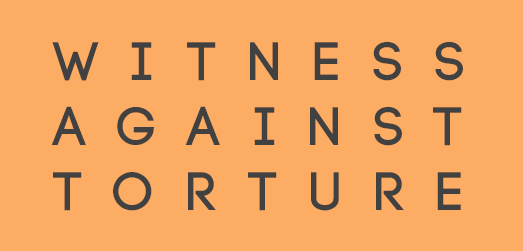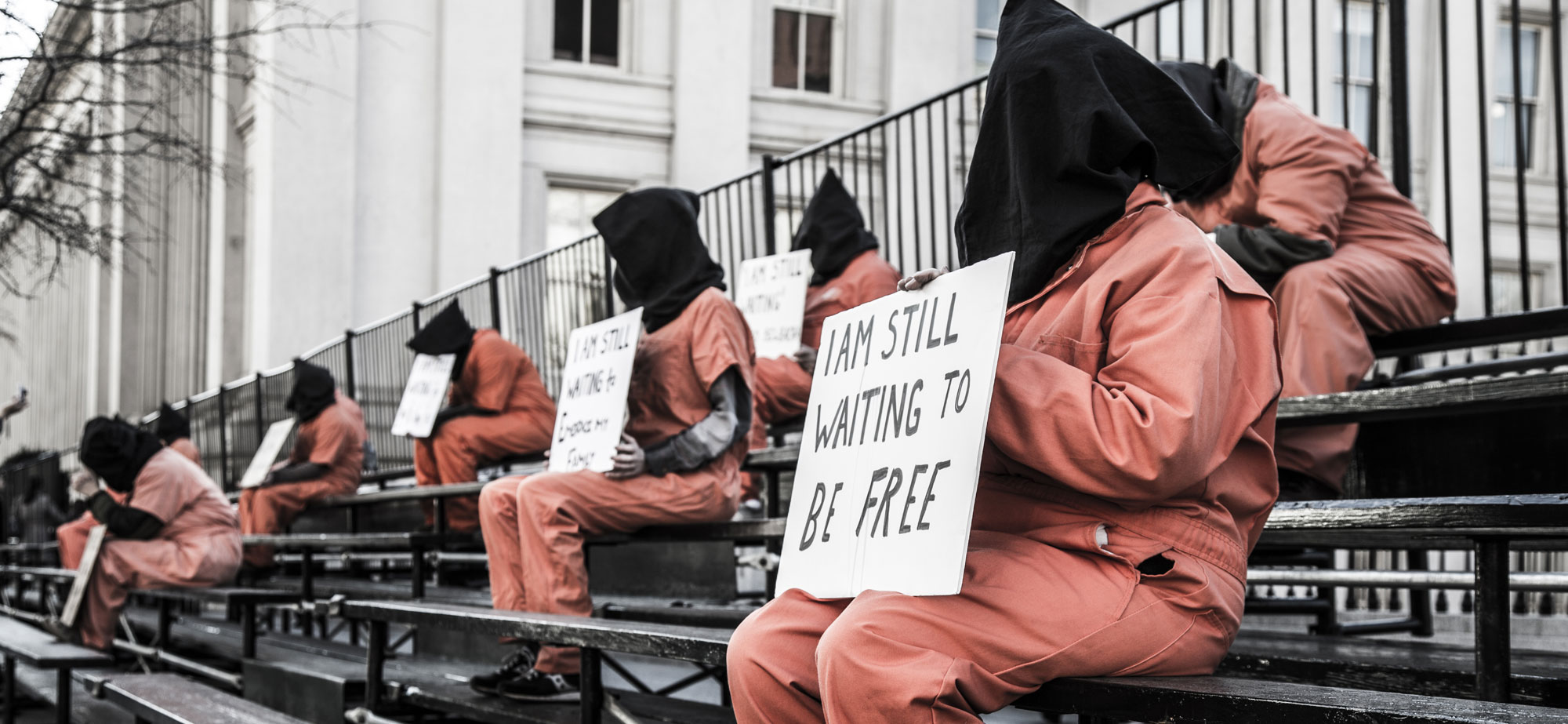From the Archive
Jeremy Varon’s Full Remarks from the White House Rally
– Rally at the White House, January 11, 2015
Today we enter into the 14th year of the operation of a prison camp at Guantánamo Bay, Cuba that never should have existed. Many of us have been coming to the White House every January 11th since 2007, with an unbending message:
– to close Guantanamo
– to end torture and indefinite detention
– to ensure accountability for the torturers
– to win justice for the victims
We bring that same message today. We will carry this message as long as it is needed.
But we also bring today new things, even new gifts that grace our gathering this year in a special glow, like the bright sunshine on this uncommonly warm January day.
Above all, we bring a true hope that the dream of closing Guantánamo may indeed become a reality.
That hope isn’t based in any executive order, or presidential promise, or speech, or vague confession that the United States has drifted from its values. All these have proven themselves to be of little or no consequence.
No, our hope is based at last in concrete action from the administration housed behind us to set innocent men free.
This last year, 28 men at Guantánamo were repatriated or resettled – many of them in the last few weeks. Dozens more releases may be quickly to come.
More prisoners have left Guantánamo this year than at any year since 2009, when Obama first took office.
Why, and why now? It is important to recognize that nothing in the twisted legal machinery of Guantánamo is responsible. No judge or administrative procedure can compel the military to release prisoners. No law frees them.
Rather, every release has been in essence a political act, meaning that at last President Obama is doing what we have long implored: asserting his political will, and exercising true leadership to do what is right, no matter how long overdue.
And what brought the president to this point? First and foremost, it was the resistance of the detainees — their hunger, their eloquence, and the irrepressible power of their cause — who insisted that they would not be forgotten in that dusty gulag, discarded, buried alive.
But the pressure came also from advocates: attorneys, human rights professionals, professors, students, journalists, faith leaders, poets, artists and songwriters, marchers, and pilgrims, and righteous disobedients dressed in orange, and pink, and black, ordinary Americans and everyday people from all over the world – people like you and me and all of us here
Let us dwell for a moment on that awesome power — in this case, the power to help free men from cruel bondage — even as we know it is never enough. And let us grow that power to make 2015 the year of the great Guantánamo jubilee: when the walls of indefinite detention crumble, the wails or torture quiet, when the stone in America’s heart begins to soften, when proud men, unjustly bound, walk free, and all men at Guantánamo are treated as human beings.
Our voices today are amplified by something else, quite grave. I speak here of the US Senate report on CIA interrogations, that verifies to all but the most benighted or self-serving that the US committed torture, with both ingenious and banal cruelty. We are all haunted by this shameful fact.
Part of our struggle is to define what it means for this country and the world. The report — assembled from the CIA’s own documents — should compel the prosecution of all those who designed, authorized, ordered and carried out torture policies. Either the rule of law is universal, and indivisible, or it is no rule, no law, at all. Part of our work is stitch together the fragments of these shattered ideas — to assemble into living truths the democratic catechism of “liberty and justice for all” mumbled by every American schoolchild, because the whole world indeed is watching what this country is and what it does. If American law won’t honor itself by prosecuting its desecrators, we can at least convict the torturers in the courts of common sense, and deliver our own sentence of public shaming — like we did yesterday at the doorsteps of John Brennen and Dick Cheney.
Last, the spirits of this movement have been lifted, as its horizons have been expanded, by the movement for racial justice rising in response to the murders of Michael Brown and Eric Garner. Roughly two years ago the anti-Guantánamo movement began seriously exploring the connections between domestic incarceration and foreign military detention. Perhaps most obviously, solitary confinement – likened to torture by medical and human rights bodies – is practiced on a massive scale in US prisons. Solitary is part of the regime in Guantánamo, along with other “behavior modification” techniques that were first developed in US domestic prisons. In 2013, inspired by the mass hunger strike in Guantánamo, tens of thousands of prisoners in California and other states went on hunger strikes to protest solitary confinement.
This brave act, in turn, inspired anti-Guantánamo activists to engage in solidarity hunger fasts lasting as long as 100 days. News of this solidarity made it through lawyers to the hunger strikers at Guantánamo, whose expressions of thanks caused us to push harder. Here we have global solidarity, not only among prison advocates, but among imprisoned human beings themselves. Let us dwell also on the awesome power of this fact, and the world-changing potential it has.
The #blacklivesmatter movement has brought into sharper focus a series of chilling parallels in the operation of state violence and white supremacy domestically and abroad. Just as police offices can kill black men with impunity, elected officials, the military, and rogue lawyers can, as of now, torture with impunity. So many people of color are incarnated as a consequence of racial profiling; the men at Guantánamo are themselves victims of religious and racial profiling.
Here and there, the rule of law is broken, because applied unequally. And mass incarceration, police brutality, and Guantánamo are ultimately tolerated by much of American society based on the toxic assumption that some lives are more worth defending than others. Today we reject that poison as something alien, incompatible with our understanding of life.
As we make these connections between here and there, diverse oppressions, and the particular techniques of a many-headed apparatus of economic, military, and racial domination, the problems seem to grow bigger, more complicated — even impossibly complex. But as we develop new solidarities, learn from and with each other, we grow more powerful. We become better able to speak out for human rights, true equality, freedom and human dignity with all the thoughtfulness and majesty these proud ideas deserve.
Jeremy Varon
Witness Against Torture



Join us on social media